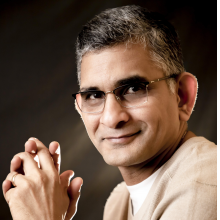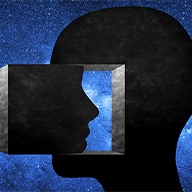Change Attitude to Reach Effectiveness (CARE)

Learning & Development
172 week ago — 6 min read
Any organisation, irrespective of the size, would want to focus on performance and growth. The question that keeps the leaders awake at night is whether to focus on targets, goals and objectives or to focus on people, engagement and motivation. Perhaps the solution is to focus on both. Irrespective of whether an organisation uses state of the art technology, is financially cash-rich and has the best strategy forward, unless their people change their attitude towards the organisation and change their behaviour, nothing will change. The question then is how to change behaviour?
There is a day in everyone’s life when we wonder what we are doing now and what do we want to do. This leads to a greater question of what is life all about. This day comes to some typically around mid-life, what is commonly known as mid-life crisis. Once a friend of mine suggested, why should it be a crisis? Maybe we can call it as mid-life alignment. I liked the word alignment. After all isn’t that what we want to do. Align to the changing environment.
It is a time when we think of what we want to do for the rest of our life.
Before I proceed any further I would like to explain our attitude towards life with an analogy to roads. Life is like the roads we travel. There can be potholes and you may not know when they will come and where they will come and how deep they are going to be. It can be early in the journey or somewhere in the middle or towards the end. How we navigate through all this and reach our destination is determined by the thoughts, beliefs and the attitude we have. Such times define who we are as a person.
We can keep complaining about the potholes and why they were created in the first place or be thankful for the opportunity given to learn something and gain experience. Truly, how many of us actually think this way?
I used to pray that there should be no potholes. Imagine a journey along a plain smooth road with no turns and potholes to negotiate. Would that journey be interesting? Can we look back and be happy about it. I wouldn’t. I realised and now started praying that I be given the physical and mental strength to deal with the potholes.
In our aim to reach the destination we may get lost and may tread the wrong way. However, we learn by ourselves or with the help of others and correct our path so we can reach our destination. Once we reach the destination when we look back and see what we have come through we feel happy about the path that we took and what we learnt in the process. Later we pass on the knowledge to others so they can use this information to negotiate their potholes.
We cannot promise that there won’t be potholes but we can help others learn to work around it with the knowledge that we have gained. Of course they may have their own unique potholes to deal with but at least we would have helped them to deal with it by helping them with their thoughts, behaviours and attitude. It is then; at least I would say we have made a difference to someone.
How is attitude formed?
If it is so easy to change our attitude then why are we not changing it so often? Life would be so much easier to lead and enjoy. The response to this question lies in understanding how attitudes are formed in the first place.
Attitudes are our state of mind towards a particular object or a person, which we have acquired over years of experience or learning and inherited from our ancestors (Influence of heredity on personality). The environment in which we have grown plays a major role in attitude formation. It is not easy for us to change something that we have acquired over a long period of time. As children, we have developed certain attitudes towards parenting, schools, education, social media, relationship, etc.
The attitude that we have acquired develops into glue-like mindsets and die-hard habits and strong beliefs. In psychological terms we call this conditioning and this strongly influences our behaviour across situations. It appears as if we have been programmed to behave in a certain way.
How do we change attitude and hence behaviour?
Behaviour is a function of the environmental conditions and attitude as we have seen is formed due to years of conditioning (programming). Both cannot be changed directly. What can be done to change the attitude and hence the behaviour is to influence the thought process.
Start thinking differently. In place where you think you cannot do it, start thinking what do you need to do so you can make it happen. For every “why” ask “why not”.
Don’t look for external sources to help build your confidence. Your confidence lies within you. Tap that inner potential and listen to your inner speech. Win from within.
Your subconscious is like a sponge. Whatever you throw at it will get absorbed. The more negative thoughts you throw the more negative attitude you develop. Start thinking positively. Dr Lev Vygotsky said one of the important sentences in English is, “I am good. I can do it”. Believe in it and reiterate the same at all times.
Think different, be different.
To explore business opportunities, link with me by clicking on the 'Connect' button on my profile.
Image source: Unsplash
Disclaimer: The views and opinions expressed in this article are those of the author and do not necessarily reflect the views, official policy or position of GlobalLinker.
Posted by
Gopalakrishnan SubramanianI am on a mission to transform millions of lives to lead a life of happiness and abundance by helping them gain clarity and positivity of their self.
Network with SMEs mentioned in this article
View Gopalakrishnan 's profile
Other articles written by Gopalakrishnan Subramanian
Can you unlock your blueprint for life?
218 week ago
5 questions you can ask yourself every day
219 week ago
Most read this week
Trending
Ecommerce 26 Mar 2025












Comments (2)
Share this content
Please login or Register to join the discussion